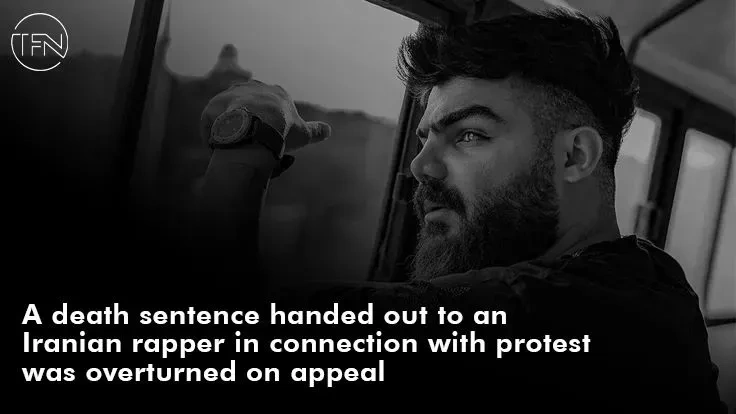
A death sentence handed down to an Iranian rapper in connection with the current protest in the nation was overturned on appeal, but another man's fight against a sentence of the same severity was unsuccessful.
The Iranian judiciary said on Saturday that the country's highest court has agreed to hear the appeal of an ethnic Kurdish rapper named Saman Seyyedi, who is also known as Saman Yasin. It pointed to the issues with the inquiry into the case but did not provide any additional information.
An Iranian court found Seyyedi guilty of moharebeh, which translates to "waging war against God." Seyyedi had backed protestors online and had created many protest songs before his conviction. During the turmoil that the police refer to as "riots," he was accused of trying to murder security officers and discharging a revolver into the air. This was done when the unrest was occurring.
In the last week, there have been rumors – which Iranian authorities have not verified – that Seyyedi managed to escape an attempt to end his life in jail, where there have been rumors that he may be executed shortly.
Another young guy, Mohammad Ghobadlou, was able to successfully appeal his death sentence, according to an early notice that was published on the official news website of the court on Saturday. However, an update provided later in the day made it clear that the Supreme Court had decided against hearing his appeal.
The young man, who is just 22 years old, was found guilty of "corruption on Earth" by a Revolutionary Court after he was accused of running over and murdering a member of the security forces with his automobile as well as wounding numerous other people.
After the news broke, Amnesty International issued a statement demanding that the authorities quickly overturn his death sentence, which had been handed down less than two months after his detention on September 22, after a "sham unfair trial."
At this point, at least two individuals have been put to death in Iran for crimes linked to the protest. The second execution took place at the beginning of this month when Majidreza Rahnavard was hung from a construction crane in full view of the public for the alleged murder of two members of the security forces.
Amnesty International has issued a warning that there is a possibility that more than two dozen more individuals may be executed shortly.
The protest started in the middle of September following the passing of Mahsa Amini, a young lady who had been detained in Tehran by the morality police of the nation for allegedly violating a mandated dress code for women. Mahsa Amini died shortly after her imprisonment.
On Saturday, 100 days had passed since the protest first began, and footage posted online showed nighttime protests taking place in several locations. Internet connections are still being heavily throttled, and the vast majority of major social media platforms and messaging services from across the world have been shut off.
The authorities in Iran have pointed the finger at foreign countries like the United States and Israel for being the ones responsible for the turmoil in their nation. Sanctions related to human rights have been placed on Tehran by several countries and organizations, including the United States, the European Union, and numerous others. In response, Tehran has imposed its own set of sanctions.

